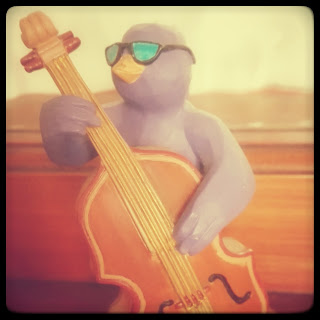It’s
important to choose your words wisely.
D# or
Eb? Why does that matter?[i]
Would
you like to get your flutes ready? vs. Flutes up. That’s not the right time for a
question. As you get to know your class
you can ask questions in other ways e.g. would you like this piece or that
piece? Shall we learn a trio next or a
quartet? Which part of this duet do you
want to play? But some things shouldn’t
be questions.
For your
classroom management to be effective, you need to establish that you’re the
teacher, and that you are in control of what happens in your classroom. One way to establish that control is by
issuing instructions. Don’t ask your students
if they would like to get ready. Because
one little smarty-pants is bound to say no.
And you’ve given them the control of the pace of the lesson. Tell them to get ready. Because then you’ve established that you’re
in control.
Why is
this important? Shouldn’t we want
students to feel empowered at their lesson?
Yes, but their power comes from making personal decisions – which song
they’ll play for their solo, which part they’ll learn for the quartet, their
improvisation in band. One individual student shouldn’t be able to control the
entire class by their personal wishes.
How else
can your choice of words affect your teaching?
Well, what is your collective name for your students? A few weeks ago I observed a beginner teacher
with first year class. In the space of
15 minutes she called the class “guys” 11 times. And the class consisted two girls and one
boy. To be fair, this is one of my
personal pet peeves, but personally, I don’t care to be called a “guy”. And I don’t think any girls should either. And in any case, 11 times in 15 minutes is a
bit excessive, even if your class is all boys.
It’s
something to have a think about.
P.S. Posts will be limited to Mondays only for the next couple of months. I'm heading off overseas to live and so am a bit pre-occupied! I'll be back regularly as soon as I've settled in to live in Japan :)

No comments:
Post a Comment